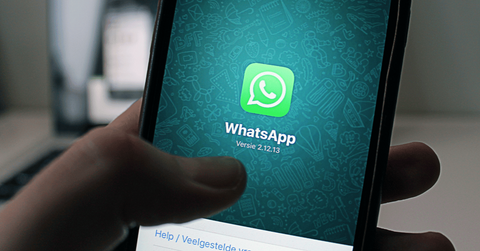A New Era of One-Way Messaging: Exploring WhatsApp Channels

July 2 2023, Published 11:36 a.m. ET
The latest update from WhatsApp brings a new feature called Channels, which introduces one-way broadcasting on the Meta-owned app for the first time. This move marks a significant development for WhatsApp as it delves into its B2C potential, presenting an enticing opportunity for digital marketers to attract more customers.
Understanding WhatsApp Channels
Take a closer look, and WhatsApp Channels seem remarkably familiar, especially for those who have used social media in the last decade. Channels closely resemble a Twitter feed, enabling individuals to follow and receive updates from organizations, public bodies, and sports teams. It opens up a whole new dimension of communication within WhatsApp, allowing users to stay informed about their favorite brands, interests, and communities.
Meta, the parent company of WhatsApp, has announced that renowned entities such as the World Health Organization (WHO) and Premier League champions, Manchester City, will be among the first users of Channels. Users will now be able to privately follow businesses or people they want to get updates from, like their favorite football clubs, recipe sites, or the best online casinos. The initial rollout of WhatsApp Channels will take place in Singapore and Colombia, offering a glimpse into the future of one-way messaging within the app. With the global expansion of Channels, individuals will have the opportunity to follow not only organizations but also creators and other individual accounts, fostering a more diverse and personalized user experience.
Features and Functionality
Once opened, Channels within WhatsApp resemble a regular chat interface, providing users with a sense of familiarity and ease of use. However, it's important to note that, unlike traditional chats, users cannot directly message within the main feed of a Channel. This design choice ensures that the Channels remain focused on delivering one-way updates, creating a dedicated space for organizations and creators to share valuable information with their followers.
Channel owners can share various types of content, further enriching the user experience. Alongside text updates, Channels allow the sharing of captivating photos, engaging videos, interactive polls, and more. This multifaceted approach empowers content creators to express themselves in different formats and enables organizations to deliver comprehensive updates to their followers. Official screenshots of WhatsApp Channels showcase not only organizations like Manchester City but also interest groups, borrowing a popular feature from Facebook's prime, where individuals can gather around shared passions and engage in meaningful conversations.
Meta's Strategic Move
WhatsApp's parent company, Meta, also owns Facebook, making it a prominent player in the social media landscape. As Facebook experiences a decline in popularity among younger users, a key demographic for advertisers, WhatsApp Channels can be seen as Meta's strategic move to regain influence within this coveted youth demographic, which is currently dominated by platforms like TikTok.
Recognizing the shifting preferences of younger audiences, WhatsApp Channels represent an avenue for Meta to tap into new opportunities for user engagement. While Channels may not achieve TikTok's level of popularity, it represents a low-risk experiment for Meta, leveraging existing technology within its ecosystem. By introducing Channels within WhatsApp, Meta aims to create a unified experience for users across its platforms, combining the functionality of one-way broadcasting with the widespread usage of WhatsApp.
The integration of Channels into WhatsApp also serves as a testament to the app's versatility and its evolution beyond a simple messaging platform. It positions WhatsApp as a multifunctional tool that caters to various user needs, allowing businesses, content creators, and interest groups to thrive within its ecosystem.
Privacy Implications
While end-to-end encryption has been a cornerstone of WhatsApp's appeal, the introduction of Channels raises concerns about the potential compromise of privacy. Previously, users could trust that their messages were secure and inaccessible to anyone except the intended recipient. However, Channels operate differently, as they are not end-to-end encrypted by default.
This shift in encryption practices is likely to spark discussions about the extent to which user privacy is valued in the pursuit of expanded functionality. While there may be valid reasons for certain Channels to employ end-to-end encryption, such as those involving sensitive topics or confidential information, the lack of default encryption raises questions about the overall privacy framework within WhatsApp.
Critics may argue that this change undermines WhatsApp's reputation as a secure messaging platform, leaving users to question the extent to which their personal data and communications are protected. The decision to prioritize functionality over privacy may attract scrutiny from privacy advocates, who argue that secure communication is a fundamental right in the digital age.
It is important for WhatsApp to provide clear explanations and guidelines regarding the privacy implications of Channels. Transparency in terms of data handling, encryption options, and user controls will be essential to maintain user trust and address concerns. Striking a balance between enhanced functionality and robust privacy measures will be crucial to ensure that WhatsApp Channels can thrive without compromising user privacy.

Final Thoughts
As WhatsApp Channels roll out globally in the coming months, more details are expected to emerge, shedding light on the implications and impact of this new feature. It remains to be seen how users will respond to the trade-off between enhanced functionality and reduced privacy. WhatsApp's foray into one-way messaging marks a significant shift for the app and presents new opportunities for businesses, organizations, and creators to engage with their audience. The future will reveal whether WhatsApp Channels will achieve the desired objectives of expanding B2C potential while maintaining user trust and privacy.
As WhatsApp Channels evolve and expand, it is crucial for Meta, the parent company, to maintain a balance between functionality and privacy. Clear communication and transparency regarding the privacy settings and data handling within Channels will be essential to build and maintain user trust. Striking the right balance between convenience, engagement, and privacy will determine the success and acceptance of WhatsApp Channels in the long run.
WhatsApp Channels represent an exciting new chapter in the evolution of the app. Users can look forward to a more tailored and engaging experience, while businesses and organizations have a powerful tool to connect with their audience. As with any new feature, there are trade-offs and considerations to be made, particularly in terms of privacy. With Meta's strategic move to expand WhatsApp's functionality and appeal, the future of one-way messaging within the app holds both promise and responsibility. Time will tell how WhatsApp Channels shape the way we interact, receive updates, and engage with the world around us.
The information provided in this article is for general informational purposes only. Gamble or play responsibly. If you or someone you know has a gambling problem, help is available. Call 1-800-GAMBLER. If you’re in the U.K. and need help with a gambling problem, call the National Gambling Helpline on 0808 8020 133 or go to gamstop.co.uk to be excluded from all UK-regulated gambling websites. We disclaim any liability for any loss or damage arising directly or indirectly from the use of, or reliance on, the information presented.


